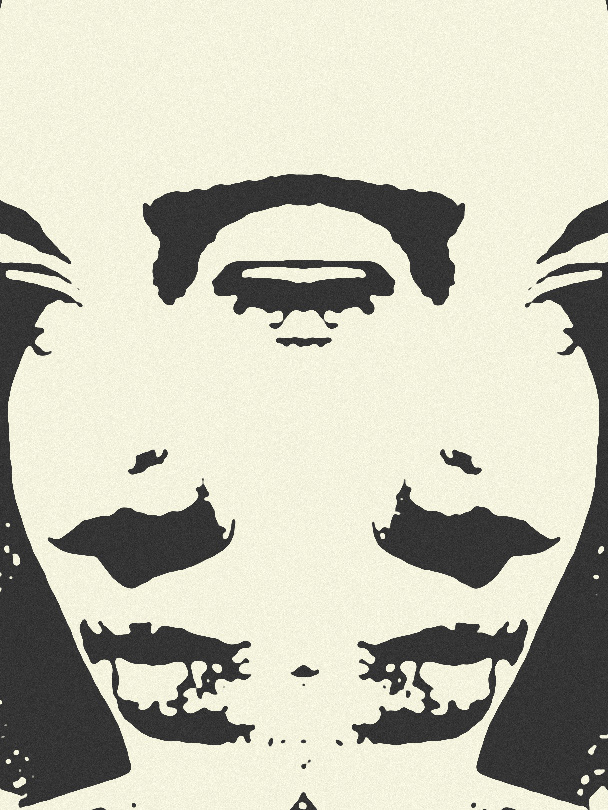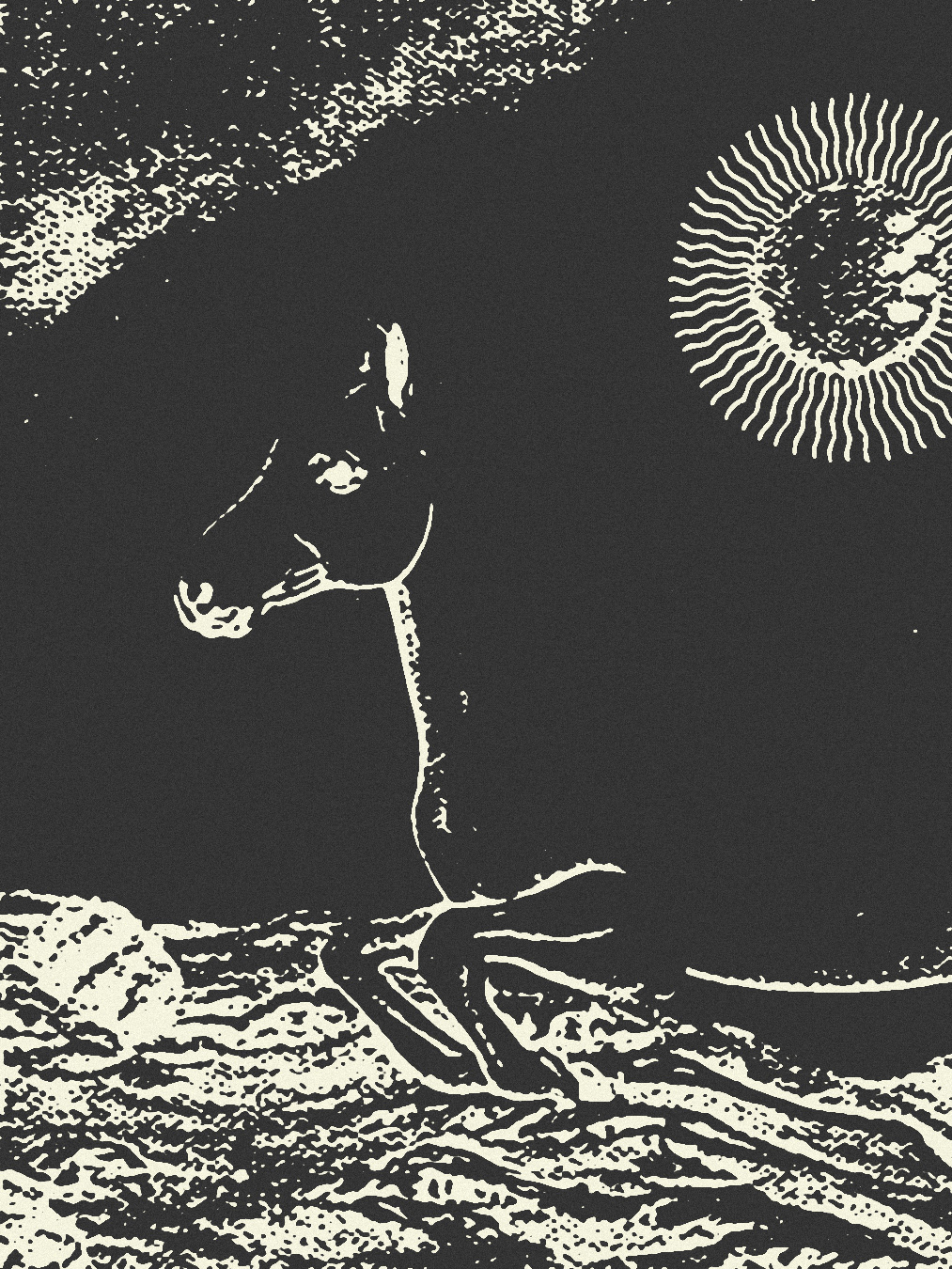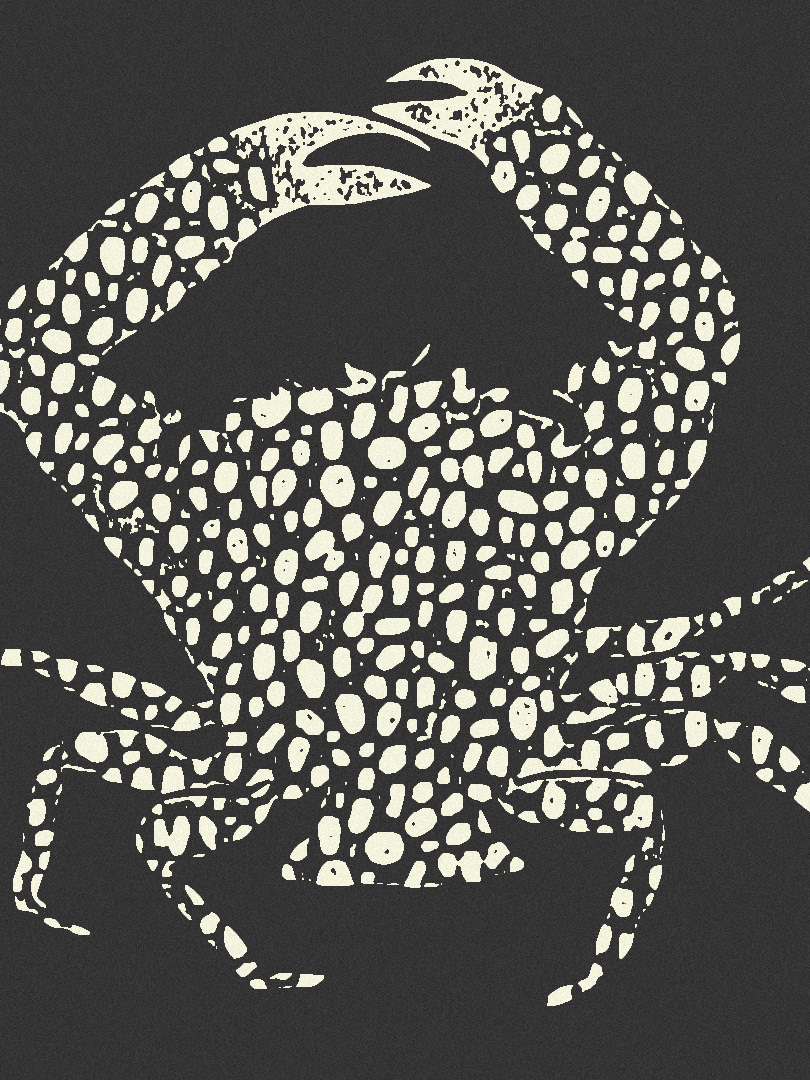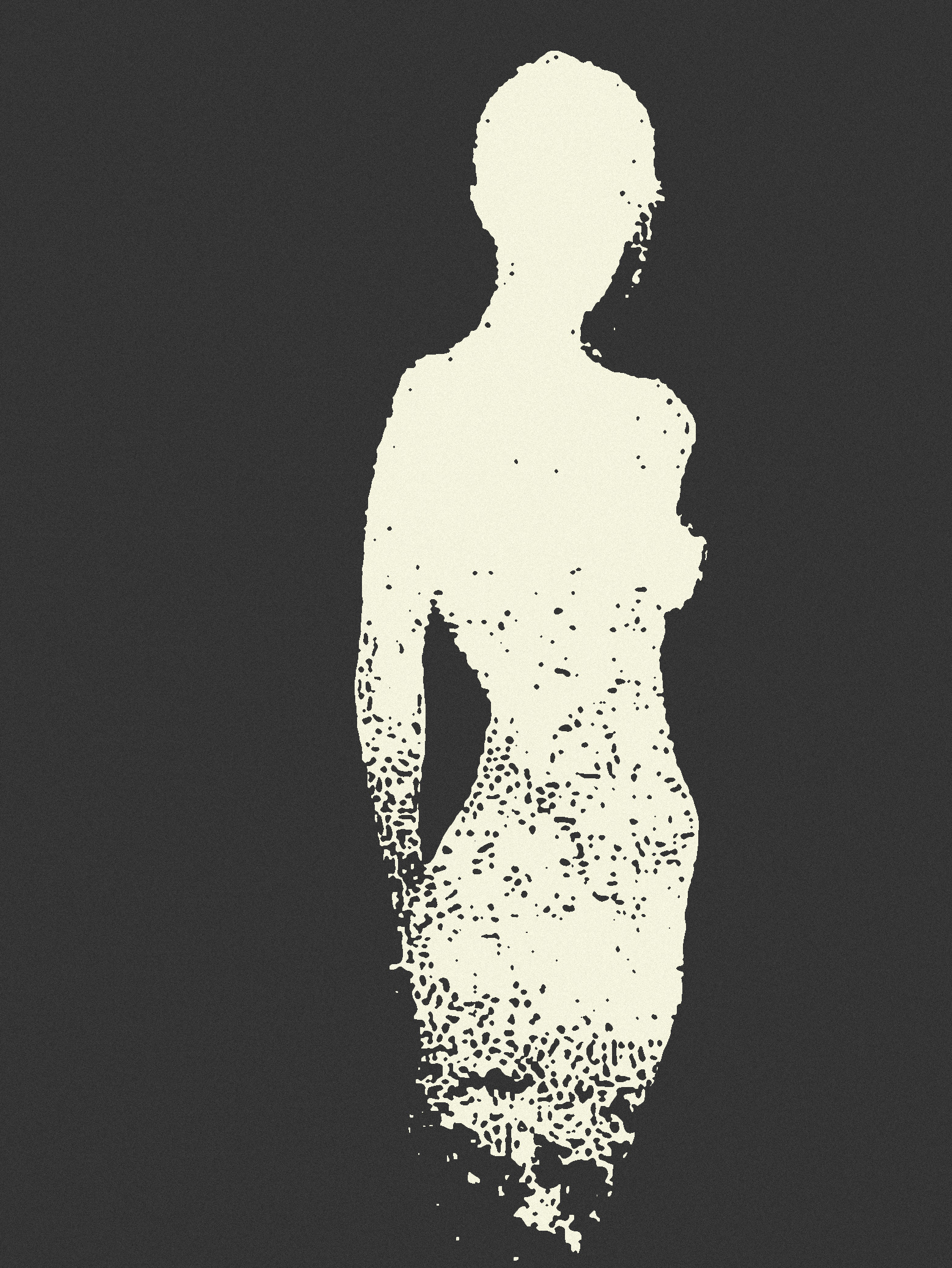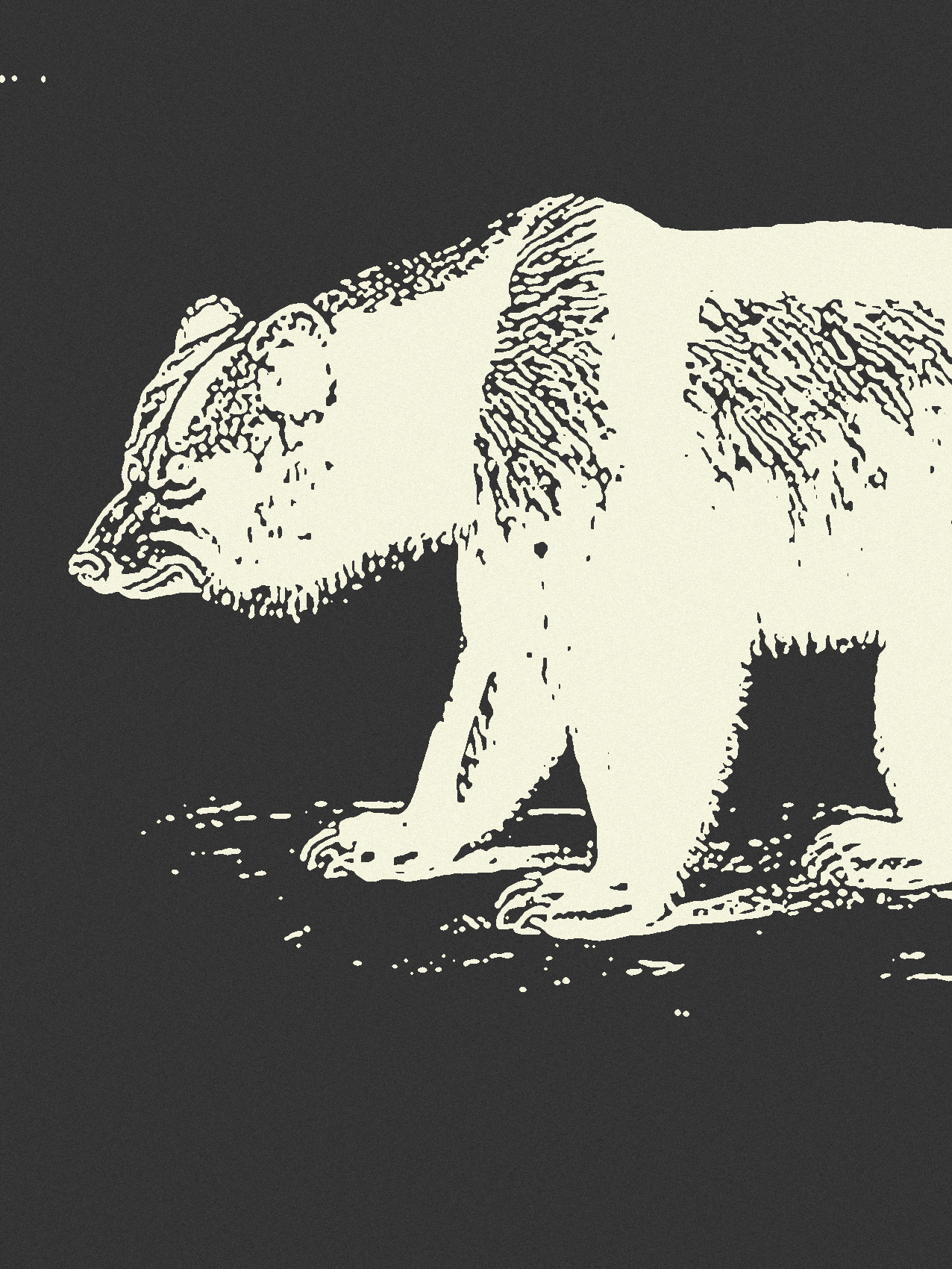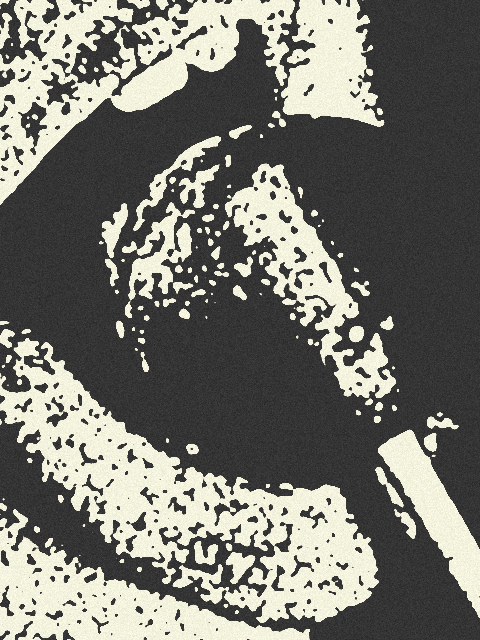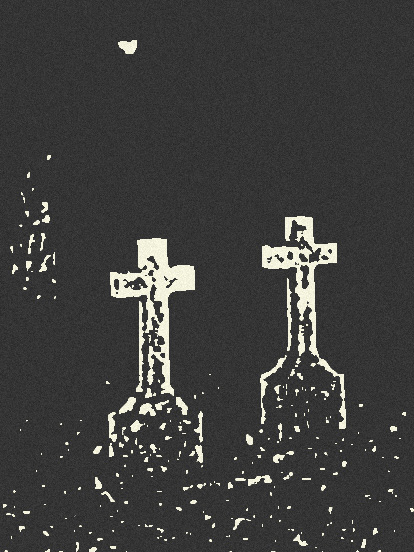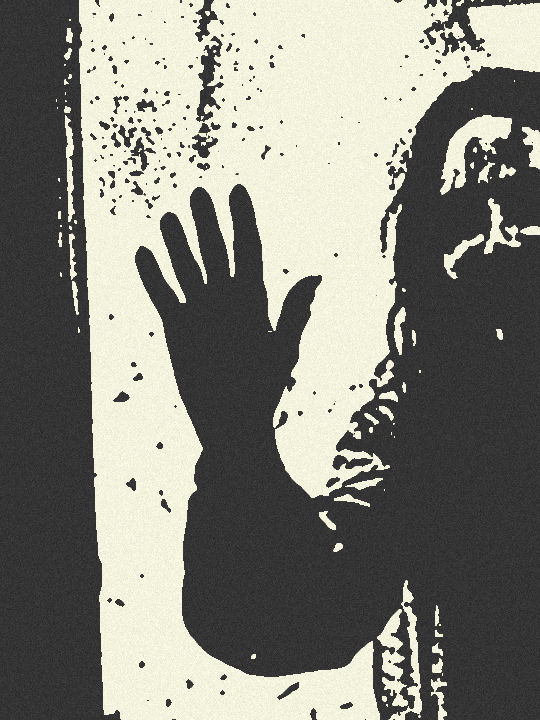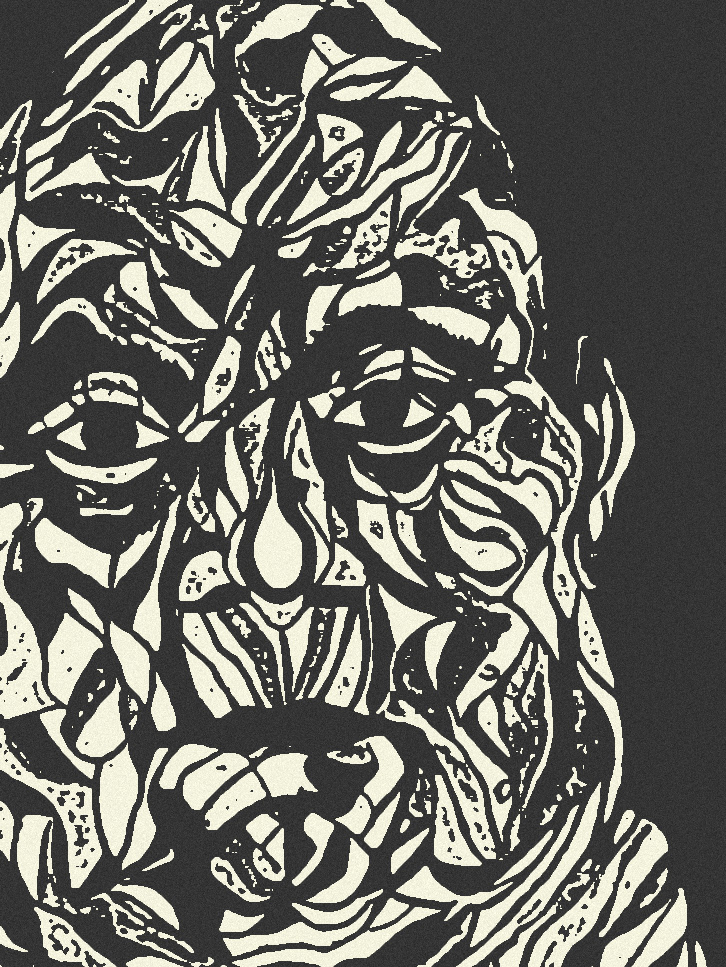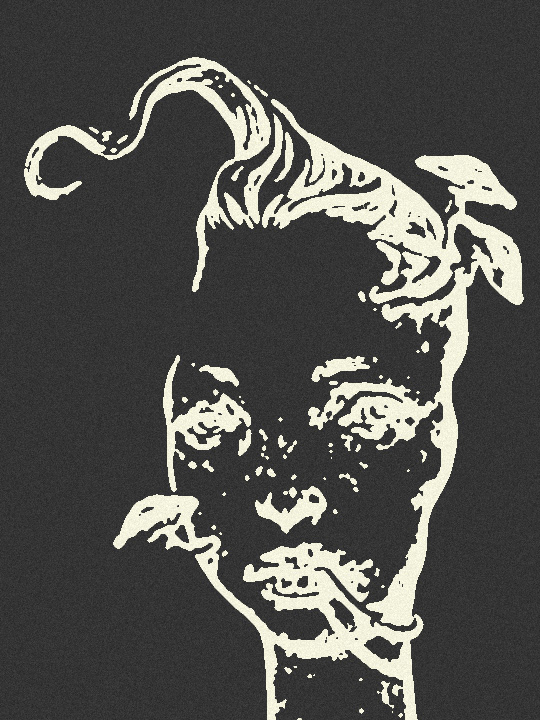✷
Port Charlotte, Florida, 2004
The End.
Those magic words. If Altavista’s Babel Fish could translate writer’s speak, it might equate to something like “a monumental feat, time for a celebration, what are you having, no, get the good stuff, I’m buying.”
Jack gave the platen knob a few turns and removed the final page. He still used a typewriter, and it was not an affectation. It was his grandmother’s, and the connection to the past, he felt, via this clunky machine, acted as a muse of sorts. He had tried many times to type on a laptop but the words just wouldn’t flow. He needed the visceral punch of those keys, the struggle of it. He needed to bear witness to the progress of piling pages, to smell the dark scent of ink, to run it dry and to curse, to force a stop in mid-sentence. To toss what might have been exquisite lines of prose into the trash can of his amnesiac short-term memory. The process kept him humble.
He set the page face down on the stack and measured it with his thumb. About two inches thick, he thought, and flipped the stack over. He looked at the title page with a face like a proud parent.
Mirror Image
a novel
by Jack Haile
It was his custom to let his work simmer for a few weeks before he started editing. He was excited about this one. It was important, it had purpose. It would crush the carefully cultivated rose-tinted mythology of his plantation-owning ancestry into rubble. He almost couldn’t wait.
But he would. Writing was his only obligation and he had all the time in the world.
✷
Jack reluctantly poured himself out of bed. He’d slept in his clothes and his body felt like shit. Mentally, however, he was high on the drug of a job well done.
Last night’s solo celebration consisted of two bags of Chinese take out and two bottles of champagne—the best that Publix had to offer. He was filled to the esophagus with both. Overeating, over-drinking: it was all part of the process. He’d paid his fare for an evening with Bacchus and the aftermath would soon be nothing more than a drop in the toilet. The inevitable double flush would be the starting shot for his next masterpiece. Ideas were already forming in his head.
He made a full pot of coffee to help it along, stretched out on the couch with the mug within reach, and opened his laptop to check his email:
YankeeCandle.com – code about to expire! – Say goodbye to 25% off your order.
Burger King - Dig into our $4 Birthday Meal – A royal feast just for you!
LinkedIn – Your job search non-negotiables should be…
44 Action News Weather – ***HURRICANE WARNING IN EFFECT***
NY Times - The Book Review – Six hot new books for summer.
DeSoto County Crime Watch – PUNTA GORDA PORCH PIRATES
Delete, delete, delete.
Click.
The hurricane warning surprised him. He always paid close attention to the weather during hurricane season but during the last two weeks he’d been completely focused on the final chapter of his book. Born as a tropical wave off the west coast of Africa less than a week ago, the storm, Charley, had just passed through Cuba on its way to the Gulf of Mexico. Once in the Gulf it was the luck of the draw as far as where it would make landfall, and at what category of strength, but a big hit to west central Florida seemed to be the consensus. Governor Bush had already declared a state of emergency.
Jesus, where the hell have I been? He thought. His water and storable food rations were okay, plenty of batteries for the flashlights, but he’d need to have plywood on the windows before the end of the afternoon. He decided he could start as soon as the worst of his hangover had passed. He closed that email and clicked on the next, The NY Times’ summer reading recommendations. He liked to keep tabs on his competitors’ successes.
He read the message aloud, interjecting with his own commentary along the way.
“Start your summer reading with these brand-new titles, recommended by the editors of The New York Times. The Catcher’s Game by Lu Saul. A softball team in Nayarit is at the center of a human trafficking… eh, not my bag. My Mother’s Birthmark: the Stain of Her by Cameron Stiles. Yeesh, not another Stiles,” he snorted. “How many twee purple bullshit books are you gonna put out in a year, buddy? People love ‘em though, God help us.”
The next book on the list caused his mind to flood with confusion. He swung to a sitting position and his knees hit the coffee table. His mug flew to the carpet.
“Mirror Image… by Charley Storm?” He thought he’d accidentally clicked back to the hurricane warning email, or that Hotmail had glitched, but no. He clicked on the title’s link and a new window opened. A paywall. “Oh Jesus, come on you cockblocker.”
He opened Google Search and typed “mirror image book charley storm -hurricane.” Every result referenced the book. The NY Times summer reading article was at the top of the list, followed by a link to where one could purchase it from Amazon.com. He clicked on the Amazon link. The thumbnail image showed a deep-sea blue cover with the title and author’s name printed in orange. The complementary color scheme produced an optical illusion; the letters throbbed. It made his head hurt. There were a ton of five-star reviews even though the book was released just a few days ago.
His heart fell to his feet as he read the synopsis.
Way out in eastern Alachua County, Florida, in a beaten-down shack among the spindly pines, crawdad trapper Soonie Evans is shaken from sleep by hurricane force winds. As he lights his lanterns, he finds himself inexplicably afflicted with double vision. His world soon becomes a nightmarish duality where reality blurs with doubles from another realm—doppelgängers that seem to have minds of their own. Soonie’s quest to decode their agenda threatens to blow apart his carefully nurtured life of solitude... and the long-buried family secret that was never meant to see the light of day. Mirror Image is nothing short of a masterpiece in the Southern Gothic tradition, an epic tale of reckoning, a sweeping examination of generational trauma, and the awful truths behind the secrets we keep.
Jack felt sick. Acid burned his stomach. He threw down his laptop.
What the holy devil God in Hell. This is my book.
My indictment.
My confession.
My redemption.
✷
Jack drove to Barnes & Noble like a bat out of Hell and dropped $24.99 to buy a copy of Storm’s Mirror Image.
The dedication simply read “For Jack.”
Chapter one: Fog is a plague.
Jack looked at his manuscript.
Chapter one: Fog is a plague.
He tore through the novel. Everything was the same as his manuscript apart from a few key elements. In Storm’s book, Soonie, the protagonist based on Jack’s great uncle, a man who lived a life of self penance inside of a rotten shack hidden away in the spare wilderness of Alachua County, was given the single last name of Evans. Jack Haile had named him who he was. Soonie Evans Haile.
The book was set in Georgia, not Florida, and the plantation’s key crop was different. But Storm kept everything else intact. The hurricanes, the finger-pointing doubles, the hauntings imagined and real, the twisted hidden history, the legacy of the trauma. It was all there.
Jack’s brain raced to reconstruct everything he’d endured leading up to the point when he had finally typed “The End.” Nearly a full year of research. After-hours privileges at the historical society, given in exchange for his indulgence of increasingly aggressive come-ons from the staff archivist. The rat-sized cockroaches that shared his room at the only motel in Lochloosa. Baptiste Fontaine, the crawfish trapper who showed him the ropes. He looked at the book and read it again.
Chapter one, first sentence: Fog is a plague. He kept going. Chapter two, the hurricane that roused Soonie from sleep: Soonie’s head throbbed as the cruel winds switch-beat his eardrums. He lights his lantern: He struck the match. Two pale hands held up two thin flames and two Soonie Evanses threw two silhouettes on two overlapping sections of the rough-cut cypress wood wall. Chapter five, the juvenile water moccasins: The blue-black cottonmouth kid whipped its ribbon left. Its white shadow, the dark snake’s Yang, whipped itself in the opposite direction before swinging back to connect with its Yin. Over and over they danced. Closer and closer they came. All the while, the landscape was ripping itself in two, pulsing, birthing a double. Two suns now reflected on the glass of the lake. Soonie will be bitten, of that he is certain. Not once, but twice, and his first cry will bounce off the second and the sounds will reverberate until inertia rocks them to sleep. Yet, he will best them, and for his struggle and pain will receive an extra piece of dinner.
Chapter eight, Soonie is visited by Petunia, the daughter he’d abandoned long ago. Chapter nine, Petunia returns to Houston in tears but her mirror image, her shadow, won’t leave the shack: Petunia 2 sits quietly on the brick floor by the fires. The twin flames bounce off of her not-the-real-Petunia sheet-white skin and dance in her not-the-real-Petunia bottle-green eyes. She is as thin as mountain air. Soonie knows the ghosts that live in her blood. She looks at him with tired, expectant eyes. Chapter twelve, Soonie tries to flee on his boat to his brother’s home in Cross Creek. Two boats now, and two Soonies. They race under swift moving clouds that reveal and block the sun in turn. One Soonie aches for the light and the other is afraid it will blind him. They struggle not to capsize from the high waves of each others’ wake. Which one will make it?
Chapter fifteen, two hurricanes make two landfalls on two worlds. Chapter sixteen, a hurricane-strength rage. The old Evans plantation’s wrecked, bloodstained bones are regurgitated from the earth—a reverse sinkhole: Colonial columns white as cotton built by stolen hands as brown as earth rise and fling Soonie’s shacks to the sky. Verandas, spindles, wishing wells, anvils, chains, pine box coffins—the earth spews it all up before sucking it back in, over and over and over again. With each heave its circumference grows. More is revealed, more is destroyed. “This isn’t my legacy,” Soonie thinks. “It isn’t my fault. Leave me alone, let me live a quiet life, or God sink me with you.” But the hands of retribution reward silence not.
Chapter twenty-two: Petunia cuts out her uterus. She gives it to the winds, storms are cleansing. Chapter twenty-three: There will be no absolution for the bloodlines Soonie’s ancestors have destroyed. He looks in the mirror and there they stand: hundreds of unrepentant ghosts bearing his name. Wearing his face. The hand of God shatters the glass from the inside and his secrets are ripped from his throat. His silent white world is no more. As he chokes on his inside-out windpipe, he sees the children of the people who would have been reflected in the shards of the mirror. They are reflected in everything. They build gardens over his decay.
The End.
Twenty-five bucks to read my own book, he thought. The unfathomable degree of his despair and his inability to process all of this made him want to laugh, but laughter wouldn’t come. He could only offer sideways sighs and shallow, asthmatic breaths. He looked at his manuscript sitting on the coffee table. He tossed the book to the floor.
Man, what a mindfuck, he thought.
Outside, the winds were starting to pick up. He knew he should hurry and board up his windows but he had neither the will nor the energy. He popped a handful of Ambien, sunk into the couch, and went to sleep.
✷
The splintered cracking of a snapped-in-half tree jolted Jack from his slumber. He lifted his head toward the window. The sky was gunmetal gray. He realized in horror that Charley had arrived, he’d done fuck all to prepare, and it was too late to flee. If the storm hadn’t made landfall yet, it would be doing so very, very soon. He opened his laptop. Charley had just made landfall on Captiva Island as a category 4. It was less than one hundred miles away and on course for a direct hit. Port Charlotte and every coastal town in its vicinity would be razed to the ground.
The rain came down in sideways sheets of steel. Errant sprays flung themselves every which way like a sprinkler loaded up with needles. Palm trees were bent at near forty-five degree angles. Sections of roof, an above ground pool, mailboxes, a motorcycle—these things and more flew like tumbleweeds down the street. He watched them smash against the sides of houses and twist around trees.
This was bad.
He tensed at the sound of metal screeching in protest as it was pulled against its will from whatever was its mooring. The garage door, he thought. If that was gone, everything would fly out. So much would be lost.
He heard a crack, a rip, and a thud. A tree branch, a javelin of pine, had pierced the roof and come through the ceiling. It was still and silent, lodged snugly in the wound, and just two feet away from the top of Jack’s head.
Kids growing up in rural Florida are taught three things: how to outrun an alligator, how to move your feet in the ocean so you don’t step on a stingray, and how to shelter in place during a hurricane. Grandpa Joe’s words were burned into Jack’s brain.
“Kid, those quickuns r’called hurry-canes ‘cause you gots to hurry yesself ‘fore you get git. If it’s too late to skedaddle you gone grab a mattress or somethin’ kindly like it and get in a bathtub and pull that thing o’er ya. Why? Tub’s a hole n’ cuts the wind, hard fer ‘em to rip it up out the floor n’ the hard sides keep ya and if the roof caves in the mattress saves yer little puddin’ head.”
Joe probably did have an extra twin mattress in a closet ready to go, next to his rifles and MRE rations. Jack had a king size Posturepedic. Maybe a couch cushion on top of the tub would suffice. He tried to get up, but the Ambien held him down. He realized at that moment that he was properly drugged. Maybe he could just roll to the floor and stuff his body under the couch. The sky was getting darker and so was the room.
Zeus aimed his wrath at Jack’s TV antenna. Another round of lightning burst a flashbulb in his face and for a second he went blind. He jumped at the sound of the force of the thunder that followed. The window panes on the opposite side of the living room shattered as if they’d been smashed in with a tire iron. Wet dull-colored shards shot through the air. They aimed for Jack’s body and several met their mark. He could still crawl to the bathroom. His body was anchored but he could move if he really tried. He had to.
Amidst all this he felt a presence. He looked straight ahead into the darkness. A tall shadow stood at the threshold to the hallway.
“Charley Storm,” Jack said. It was a statement, not a question. He could barely hear his own voice over the sucking, whistling howl of the winds. But Storm heard him.
“That’s right,” the shadow replied. Storm’s voice sounded like Jack’s. Terror tightened a vise around his heart.
“I want to apologize, Jack. We all do. You know what for, of course. Of course you do. After all, that’s why you felt the need to write that.” The shadow truly did sound sorry.
Jack’s voice came out sounding more weak than he would have liked. He slurred his words. “Charl—whatever you are. I have to tell them. I have to tell them what you did. What you all did to all the people on that blessed, bloody plantation. The sick heirloom you made me inherit. The world will learn the truth about the Alachua Hailes and they’ll spit on your graves.”
The shadow was unmoved.
“Objectively speaking, we agree, the book is the best thing you’ve ever done. More than that… it’s a work of genius. We all think so. But we talked and, well, we simply couldn’t allow you to do it.”
“But you don’t understand. I have to. It has to be me. I’m the last of us… I’m done with keeping these secrets.”
The shadow shook its head.
“It’ll be told... some semblance of it, anyway. But it won’t be told by you. Not in our name. That’s why we had to copy it, you see, why we had to release it before you let anyone see yours… it was the only way to quash it. Who would’ve believed you’d written yours first?
“It’s why we moved the setting to Georgia. It’s why the crops are tobacco, not cotton. History is a breadcrumb trail of details and Charley Storm has given them something else to follow. They won’t be looking for the graves on our land. And someday, probably soon, the old fields will be paved. Shopping centers, neighborhoods, cul-de-sacs, you name it. It’s inevitable. In a way, you’ve done us a favor. They’ll never find us, Jack.”
A swell of a hundred indignant voices caught the swirling winds.
“Who are you to implicate us?”
With that, Storm faded into the screaming darkness.
✷
Jack laid down and watched from below as the roof curled up at the edges.
He looked over at his manuscript. It remained undisturbed. Hurricanes are strange. They’ll flatten one home and spare the one next door. They’ll blast out bedroom walls but leave the bed in place with its linens lightly fluttering.
The papers couldn’t rest forever. They began to quiver as Charley’s hands tore the roof back and up and off like a tin can lid. One by one, the pages of his painstakingly crafted testament rose toward the home’s mortal wound, sailing skyward in single file. As they flew, the winds folded each individual page into a perfect white crane. He watched them pirouette in the sky.
They made him think about the legend of the girl who folded a thousand origami cranes in the belief that doing so would cure her from leukemia caused by radiation poisoning after the bombing of Hiroshima.
It’s funny, the things that pass through your mind when you’re just about to die.
Jack watched the cranes soar until the last one disappeared. Right when it did, the eye of the storm passed over the house. Through the aperture, the sun was shining in a turquoise sky. An ever so brief moment of calm.
The End.
He closed his eyes and went to sleep. All around him, drywall was being stripped from the walls. Two-by-fours were snapping. Wiring was whipping. Furniture was flying. He dreamt of a falling building. It was falling forever, falling in on itself. Over and over and over again.
An infinite collapse.
✷
Kelli Dianne Rule (she/her) is a writer and art historian with roots in rural Central Florida. Her passions include DIY homebuilding, cringe comedy, and utilizing the literary genres of speculative fiction, fantasy, and horror to draw attention to the history and aftermath of colonialism in her home state. Her publishing credits include Heavy Feather Review, Green Hills Literary Lantern, Whale Road Review, and Creepy podcast.

